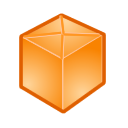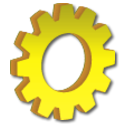LitDev Extension API
LDDebug

Debugging utilities.
Break

|
Instrument

|
Start

|
Break(label)

Set a break point, where the program will pause and variable values can be viewed.
label An identification label for the breakpoint.
A unique label should be chosen for each breakpoint defined.
There are some known limitations with breakpoints inside event subroutines.
Instrument(fileName)

Create a SmallBasic file (_debug.sb) with break points auto added for each line.
Just open and run the new instrumented file to debug it.
When a problem is found, correct it in your original and re-instrument to debug the corrected file.
fileName The Smallbasic file (*.sb) to instrument.
Start()

Start a debugging session, usually do this as the first line of your program.
Usually you would either set break points manually in your code before running (LDDebug.Break) or auto add breakpoints (LDDebug.Instrument).